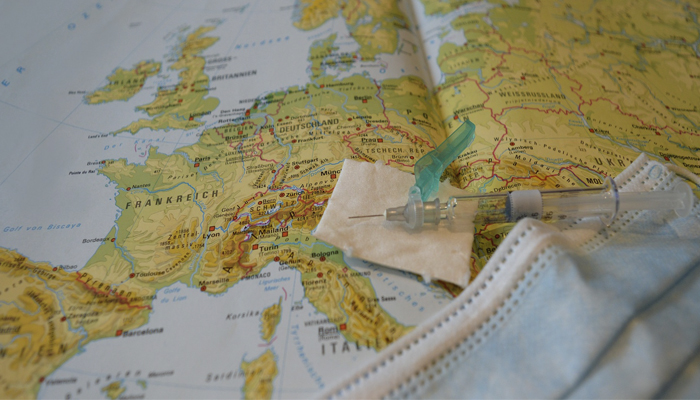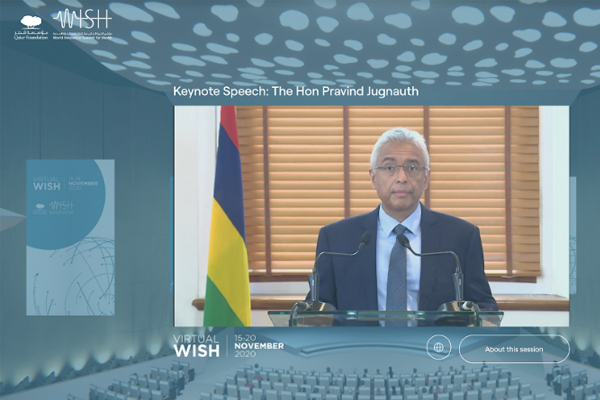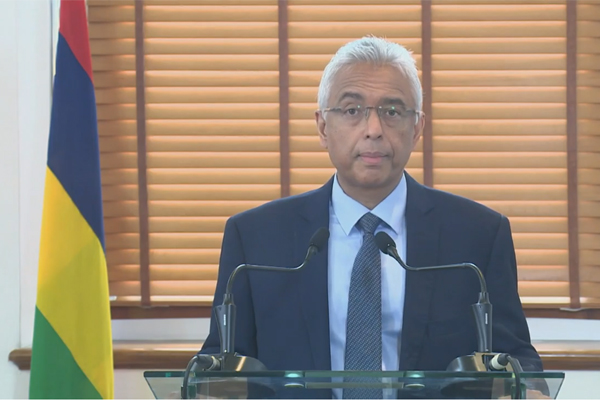Mauritian Prime Minister Pravind Jugnauth has called on leaders of the world’s governments and health organisations to ensure that Covid-19 vaccines are distributed ‘fairly’. He fears that some parts of the globe might get left behind in the dash for coronavirus immunity.
Jugnauth said he wants to ensure that no country misses out on the crucial vaccines once they are approved for use. He also advised governments to ensure efforts are coordinated with the World Health Organisation.
“The Covid-19 pandemic has laid bare the inequalities that exist amongst nations. And this is nowhere more evident than in the area of having fair and equal access to safe, effective, and affordable Covid-19 vaccines,” stated Jugnauth during the World Innovation Summit for Health (WISH).
ENSURING FAIR DISTRIBUTION
“Access is key to changing the course of the pandemic and help those countries experiencing catastrophic economic and fiscal impacts to move toward a resilient recovery. We call for global leadership and coordinated response to ensure that any approved vaccine is distributed equitably,” he added.

Around 150 vaccines against Covid-19 are currently in development around the world, with three main front runners in the race for immunisation. They include Pfizer/BioNtech, Oxford University/AstraZeneca and Moderna. Initial trials for all three have shown promising results, but “there is still a long way to go before they are given the green light”, highlighted Jugnauth.
Even with an accelerated timetable, the first doses will not be available until the end of the year at the earliest and then only to a limited amount of people in countries who have placed orders for the vaccines. Widespread vaccination is unlikely to happen until the second half of 2021. Then “the question is how will less wealthy nations fare in the race for the vaccine with experts predicting lower and middle-income countries might not get mass immunisation until 2022”, he pointed out.
MAURITIUS’ COVID-19 RESPONSE
Speaking at the closing day of the fifth edition of Qatar Foundation’s WISH 2020 summit (on 20th November), Jugnauth told delegates how Mauritius contained the virus thanks to a multi-layered response. This included a strict regime of PCR testing, 14-day quarantine, isolation and treatment as part of the government’s containment strategy. The island nation of Mauritius has already pre-ordered vaccines for 20% of the population. They will go to the country’s front-line staff and those most vulnerable to the virus first.
Mauritius has a population of around 1.3 million people, with many living in densely populated areas. But due to an early lockdown and strict quarantine measures, the government managed to reduce the impact of Covid-19 to just 478 cases and 10 deaths. “Considering our circumstances, our response has been heralded as one of the most efficient in the world. We managed to contain, in a matter of six weeks, the virus which reached our shores on the 18th of March,” explained Jugnauth.

RISING INTEREST IN STEM CAREERS
However, he added that the unprecedented scope and magnitude of pandemic continues to pose challenges for Mauritius. The main one being the “drying up of international visitor numbers, in terms of both business and tourism”. To mitigate the impact, Jugnauth said his government is providing economic, income and job support to affected sectors of the economy.
“As a centrepiece of our own recovery policy, my Government is committed to injecting significant national resources, which will total almost 30% of the country’s GDP, to support and build the economic recovery of Mauritius,” he said. One positive impact of the pandemic is the “increased interest from young people in following careers in medicine and public health as well as STEM subjects”, Jugnauth noted.
“If one thing positive can come out from 2020 it is that adversity builds commitment, and hope brings resilience,” he concluded. “This is a war that we, and specially our youth, will not forget and will grow from.”







































